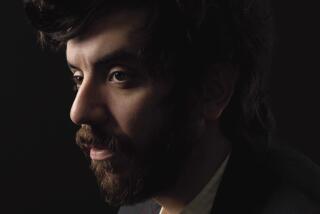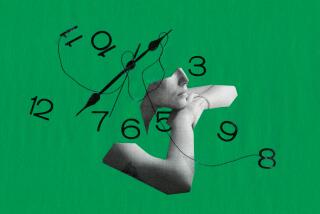A vet’s battles continue
Is Greg Valentini going to make it?
After harrowing combat tours in Afghanistan and Iraq, years of nomadic dumpster diving in Lakewood, and a meth addiction that nearly destroyed him, can he save himself?
Valentini occasionally opens a photo album and sneaks a peek at an unflattering picture — it’s the monster version of himself. The Great Valentini, as he’s known to some friends, is blitzed in the photo, high on meth, a crazy-eyed zombie slumped on a sofa.
“It’s to remind me where I come from,” he says in his dorm room at the Volunteers of America vet center in Hollywood, where he and other vets from Afghanistan and Iraq now fight addiction and other vestiges of war.
When I visited Valentini in mid-February, he was in a bit of trouble at the VOA. With a weekend pass, he had taken a train to his old neighborhood and had begun walking to a spot along the tracks where he knew he’d find a dealer.
He’d told himself the whole way that he wouldn’t do it, he couldn’t do it. He knew the risks, and knew he’d blow the drug test when he got back to the VOA.
But none of that stopped him.
Another voice told him he’d paid his price, his life was his alone and he was entitled to escape reality — to obliterate the images of war and relieve the pressure building in his head.
The Great Valentini scored some dope, bought a pipe and, 25 minutes after stepping off the train, he was back in the prison he’d built for himself. The meth kick was immediate.
“It’s like an extreme adrenaline rush. For the first 24 hours you’ve got a good buzz, you feel good about yourself. But what goes up must come down. I get angry, I start hating myself, hating the people around me. People ask, ‘What’s wrong with you?’ You want to say, ‘You go fight a war and come back and try to find a job.’”
Valentini limped back to the VOA and immediately confessed his deeds to the staff. If he makes it, in the end, one reason will be that he knows there’s no percentage in lying to himself or the people trying to help him.
Valentini agreed to more addiction counseling and a renewed commitment to his escape plan. That plan is to be stronger in fighting temptation, to focus on school and to work toward becoming a social worker who steers addled vets away from the kind of trouble he knows so well.
One day recently I caught glimpses of Valentini’s future and his past. I went with him to Los Angeles City College and sat in on his political science class, then we drove out to where he got into so much trouble in Lakewood.
In class, he sat in the last row. He’s a warrior, trained to watch his back.
Valentini listened attentively to a lecture on dramatic changes in American society over the past century, including advances in technology and the concentration of wealth. He likes the class, but at times the discussion has been charged for him. He told me that in an earlier class, a classmate said she thought vets faked post-traumatic stress disorder to avoid prison time for their crimes.
Valentini was incensed. He wanted to speak but didn’t. If he’s going to be a good social worker, he told me, he needs to learn empathy. It would have felt good to tell that student that post-traumatic stress is real.
But Valentini doesn’t let himself blame all of his problems on PTSD, even though he wasn’t an addict before his military service.
“I’d attribute half of it to war and half of it to just being a dope fiend. Yeah, part of it is the symptoms of stress disorder, but that’s kind of copping out, isn’t it?”
When we drove out to where Valentini grew up, he said he felt that Lakewood let him down after his military discharge. The postwar town once embraced its vets, he said, building affordable housing for soldiers moving into aerospace and manufacturing.
But he met only alienation upon his return. The town he knew so well didn’t seem to know him any longer. He had served his country in two wars no one cared about.
The pipe, Valentini says, meant “I did it to not have to face reality.”
He took me to a field near the Long Beach airport where he lived in a tent and used to watch planes roar overhead until the fog moved in. He pointed out the garbage bins he dug into for recyclables. He showed me campsites where he got high, and he pointed out the stores he stole from to support his habit.
“I really hated myself when I was out here,” said Valentini.
“There’s nothing worse than being a thief and knowing even thieves don’t trust you. I knew I was better than what I was doing. People knew me and the way I’d come up. It was embarrassing for me to show myself this way — on a bicycle or on foot with a bag of cans, eating pizza with dirty hands.”
Still, Valentini said, making a break with Lakewood isn’t easy. He has fond childhood memories, and home is home.
Last weekend, Valentini got another pass and went back to Lakewood. This time, he met with a lady friend, stayed clean and returned to the vet center convinced that he can get where he wants to be.
More to Read
Start your day right
Sign up for Essential California for news, features and recommendations from the L.A. Times and beyond in your inbox six days a week.
You may occasionally receive promotional content from the Los Angeles Times.







